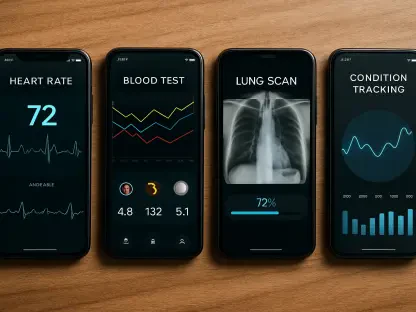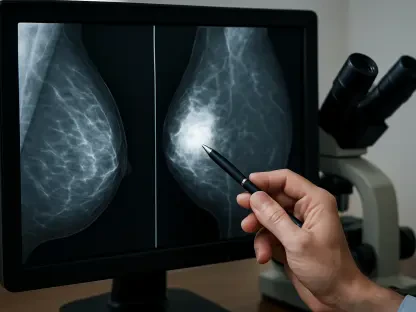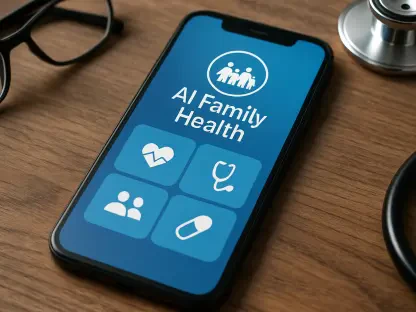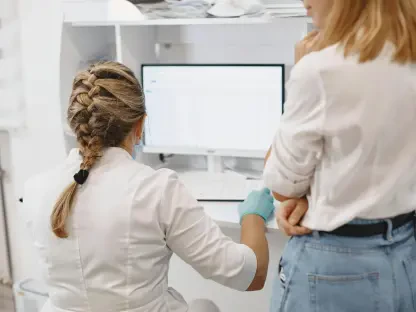Halton Region is poised to make significant strides in improving healthcare accessibility by expanding its mobile sexual health clinics, targeting underserved communities. These clinics have been growing in demand since their launch in July 2024 and currently serve residents of Georgetown weekly. With a vast number of Ontario residents, approximately 2.3 million, lacking access to a family doctor, the region’s commitment to extending the reach of these mobile clinics is a vital step towards equitable healthcare. By prioritizing service for high-risk groups and focusing on offering essential sexual health and harm reduction services, Halton aims to cater to marginalized communities who might otherwise struggle to receive necessary care.
Addressing Healthcare Needs in Underserved Communities
Breaking Barriers with Mobile Clinics
For individuals residing in North Halton, the extension of the mobile sexual health clinics comes as a beacon of hope. The mobile clinics aim to break the barriers that prevent people from seeking necessary sexual health and harm reduction services. Halton Public Health prioritizes higher-risk communities, which include sex workers, people using drugs, and other marginalized groups such as Indigenous peoples, members of the 2SLGBTQIA+ community, and men who have sex with men. These groups often face multiple layers of stigma, making it difficult for them to access traditional healthcare services comfortably.
The mobile clinic provides free and confidential services, crucial for those who might fear judgment or repercussions from seeking care. Services such as STI testing, pregnancy counseling, birth control consultations, and emergency contraception are offered without any need for a health card. Additionally, the clinic distributes harm reduction supplies like needle exchange materials and naloxone kits, ensuring that these life-saving resources are accessible to those in need. By not requiring a health card, the clinic models an inclusive approach to healthcare, facilitating self-referrals and thus making it easier for individuals to obtain timely support.
Prioritizing Service for Vulnerable Populations
The successful implementation of mobile clinics hinges on their ability to reach the most vulnerable populations effectively. Dr. Patrick Galange, Halton Region’s Associate Medical Officer of Health, emphasizes that the clinics are intended to be safe spaces for individuals in crisis situations or those feeling uncomfortable at conventional clinics. The team’s primary focus is on ensuring that no individual is turned away, regardless of their circumstances. The accessibility and confidentiality of the services mean that people who may not have access to a doctor or possess a health card can still receive critical healthcare without judgment or barriers.
Bookings at the Georgetown clinic quickly reach capacity, highlighting the significant demand for these services. To better serve walk-in clients who may not be able to plan ahead, public health officials are exploring options for accommodating them. The aim is to ensure that even those unable to secure appointments in advance are not left without necessary care. This adaptability and forward-thinking approach are critical in addressing the healthcare gaps that many vulnerable populations experience. By striving to provide a non-judgmental, accessible environment for all, the mobile clinics make it possible for more individuals to receive much-needed health services.
Expanding Reach for Greater Impact
Next Steps in Broader Adoption
The aim to extend mobile clinic services across more days and locations in Halton represents a significant step in reaching more residents in need. The intention is to expand these services into the northern parts of Halton, which have historically seen limited access to healthcare facilities. By doing so, Halton Public Health seeks to eliminate geographical barriers that prevent many from accessing essential sexual health services. The integration of more service days ensures that people have more opportunities to seek healthcare assistance without having to worry about scheduling conflicts, which can be especially challenging for those with unpredictable or busy lives.
Expanding the clinics’ reach also means bolstering ongoing efforts to educate the public about the availability and benefits of these services. Community outreach becomes a pivotal aspect of the broader strategy, ensuring that everyone, particularly those in remote areas, is aware of the resources available to them. This includes using various communication channels to spread the word and engage with communities directly. By maintaining a robust presence in both online and offline platforms, the initiative aims to maximize its impact and ensure that no one falls through the cracks due to a lack of information.
Ensuring Long-Term Sustainability and Adaptation
Halton Region is set to make substantial progress in enhancing healthcare accessibility by expanding its mobile sexual health clinics, specifically targeting underserved communities. Launched in July 2024, these clinics have seen increasing demand and now provide weekly services to Georgetown residents. With around 2.3 million Ontario residents lacking access to a family doctor, Halton’s initiative to extend the reach of these mobile clinics represents a crucial step towards equitable healthcare. The project focuses on high-risk groups by offering essential sexual health and harm reduction services, aiming to assist marginalized communities who might otherwise face challenges receiving necessary care. This proactive approach in Halton Region underscores its commitment to reducing healthcare disparities and ensuring that vulnerable populations have reliable access to the services they need.









